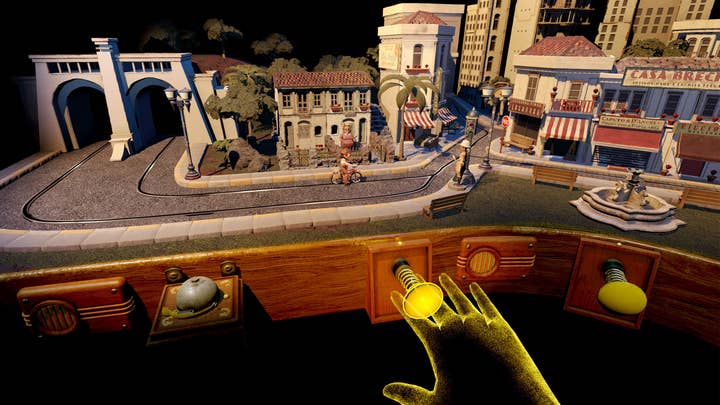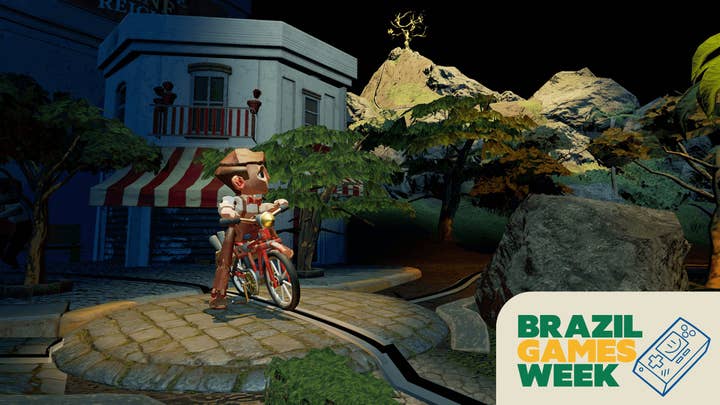Arvore's journey to achieving recognition as a VR developer with an Emmy Award
The evolution of video game development in Brazil, which dates back to the 1980s, has paralleled the nation's early exploration into virtual reality. Rodrigo Terra, heading the Brazilian gaming association Abragames and co-founding Arvore Immersive Entertainment, has engaged with VR technology since 2014, even tinkering with the Oculus Rift DK1 before Facebook's acquisition of Oculus.
Terra explains to GamesIndustry.biz his initial fascination with VR upon its emergence. "VR amazed me because it offered not just a view through a screen, but an immersive experience," he recalls.
Despite the burgeoning interest, Brazil's VR market remains modest. Nonetheless, this has not deterred key industry players from striving to secure a presence there. "Major firms are promoting VR headsets for productivity, but they haven't reached that potential yet," Terra mentions, acknowledging Apple's and Meta's strides in respective directions to nurture growth. Yet, wider adoption is expected to take more time.
Access remains crucial. The widespread appeal of smartphones in Brazil stemmed from initiatives allowing domestic manufacturing, significantly lowering prices. Such measures have yet to be replicated for VR.
The VR community in Brazil is expanding, according to Terra, as developers navigate import challenges. Many are bringing VR equipment into the country by various means, suggesting a small, but enthusiastic, base of VR users.
"It's a niche market, but that's why our focus at Arvore remains on the global stage," he states. With hopes pinned on companies like Meta, Google, and Apple formally entering and investing in Brazil, there is optimism for elevated adoption rates.
"If Apple could fit all that technology in that little thing, which is super light, what can we do in ten years? It's moving that way, and players are now investing"
Brazil has been quick to embrace technology trends, rapidly adopting platforms like WhatsApp, Discord, and TikTok. Terra believes affordable access to VR will lead to a massive uptake.
Arvore was established seven years ago by Terra and Ricardo Justus, who originally operated a TV production company. Their shared passion for gaming and cutting-edge technology led them to explore VR's potential in 2015, even before consumer VR headsets were available beyond prototype stages.
"The timing was right," Terra says, recalling their decision to capitalize on the second wave of VR companies after pioneers like Survios and Owlchemy Labs.

The founders funded the startup with personal resources, pitching their concept to investors over a year and eventually receiving seed investment. They then assembled a diverse team from gaming and other creative fields like film and TV, launching Arvore Immersive Entertainment in 2017.
Initially, Arvore worked on commercial and location-based projects, foreseeing immersive experiences as the future of entertainment. "Brazil offers the talent and resources, and there's a blue ocean international market," Terra says, though acknowledging local hurdles.
Indicators of success include Arvore's debut VR game, Pixel Ripped 1989, and its sequel. However, their breakthrough came with "The Line," an interactive VR love story led by director Ricardo Laganaro. It gained acclaim at the 2019 Venice International Film Festival, marking Brazil's first award win there for a VR piece and subsequently earning a Primetime Emmy.
"Winning in Venice after 76 years was a milestone," Terra reflects. "It demonstrated our global appeal, craftsmanship, and storytelling. Even with the market's ups and downs, we're progressing and remain steadfast in our belief in VR."
"Immersive experiences were what we saw as the future of entertainment, and they still are"
As the discussion shifts to the challenges VR faces in achieving mainstream popularity, Terra addresses the recurring prophecy that VR will soon break through. While some predict imminent mainstreaming, Terra notes such claims have persisted since his early involvement in the field.
Confident that VR will eventually integrate into daily life, he muses, "We'll reach a point where phones and computers won't be necessary – everything will be immersive. It's inevitable."
Highlighting the strides in VR hardware, Terra observes the technological progression mirroring the future potential of devices like Apple's streamlined Vision Pro.
Currently, the VR market mostly targets adults with a taste for technology and the means to invest in it, but Terra foresees a generational shift. As more children receive VR headsets as gifts, he anticipates immersive tech becoming integral to entertainment.
"This emerging generation incorporates VR in how they interact and play," he concludes. Though still niche, understanding and acceptance of VR are growing. No longer an experiment, VR is evolving into a robust industry. As for predicting its full potential and timeline, Terra quips, "I'd be a multibillionaire if I knew whether it will take five or ten years."
